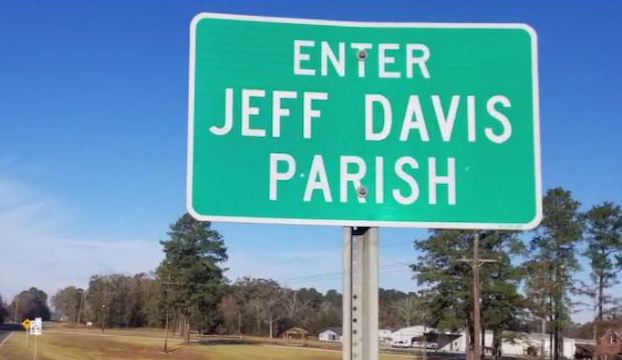Jim Beam column: Wilson is facing tough odds
Published 6:16 am Wednesday, March 8, 2023

- Democrat Shawn Wilson, former state secretary of transportation, has entered the race for Louisiana governor while others talk about their decisions.(Photo courtesy of The Daily Advertiser of Lafayette).
Democrat Shawn Wilson, the former state secretary of transportation, has entered the Oct. 14 race for governor. And U.S. Rep. Garret Graves, R-Baton Rouge, ended speculation by saying he isn’t running this year.
State Attorney General Jeff Landry has an endorsement from the Louisiana Republican Party and a hefty campaign war chest that figures to make him a possible frontrunner for his party. However, news reports indicated Stephen Waguespack, president and CEO of the Louisiana Association of Business and Industry, said he’s thinking about running.
Wilson is highlighting his many years of government experience as a plus and his willingness to work with Republicans.
“I’ve demonstrated an ability to work with folks with different ideas from mine and from a different party and find common ground,” he said.
The Advocate said Wilson has two major challenges. One is that no Democrat other than Gov. John Bel Edwards has won a statewide office since 2007. The other is that he is an African American and Louisiana hasn’t elected a Black person statewide since the post-Civil War Reconstruction era nearly 150 years ago.
Albert Samuels, chairman of the political science and geography departments at Southern University, said, “If history is any guide, he has a tough road to hoe. White voters don’t vote for Black candidates. It’s as simple as that.”
“The weight of that is important,” Wilson said. “But I’m not running to be the Black governor. I’m running to be governor. I want to be the best governor ever.”
OK, how did Edwards pull it off in 2015 and 2019?
Edwards and former Republican U.S. Sen. David Vitter of Metairie made the runoff in the Oct. 24, 2015, primary. Edwards led with 40% of the vote to 23% for Vitter.
The Associated Press said months before the election Vitter was atop the polls, flush with millions in campaign cash and running like an incumbent. However, continued talk about his 2007 prostitution scandal and criticism about his attack-heavy campaign tactics hurt him in the polls.
Scott Angelle and Jay Dardenne, two other Republicans in the primary, also attacked Vitter. And Dardenne ended up endorsing Edwards in the Nov. 21, 2015, runoff.
Edwards campaigned as a conservative Democrat. He was also a pro-gun and anti-abortion candidate with a West Point degree. The AP said he built a campaign on personal integrity. He won the runoff with 56% of the vote to 44% for Vitter.
Like Edwards, the newspaper said Wilson supports increasing the minimum wage, paying women the same amount for equal work as men and raising teacher pay by as much as $3,000 per year. Wilson is a gun owner who opposes taking guns away from law-abiding citizens but favors background checks on the purchases at gun shows and garage sales.
Wilson is also opposed to abortion, but he supports the government allowing women to choose whether to have the procedure.
“I am not of the mindset to force my religious beliefs on others,” he said. “It’s not the government’s right to tell a woman what to do with any medical procedure involving her body. They have a right to privacy for these decisions.”
In 2019, Edwards faced two new GOP candidates — businessman Eddie Rispone and U.S. Rep. Ralph Abraham. Donald Trump was president at the time and endorsed Rispone.
Trump said in one tweet, “Congratulations to the Great State of Louisiana. A big night. You will soon have a new and wonderful Governor, @EddieRispone.”
Edwards made the runoff with 47% of the vote to 27% for Rispone that got him into the runoff. Abraham was third with 24%. Rispone supporters had hoped those who voted for Abraham would shift to Rispone despite his attack ads against Abraham, but if they did it wasn’t enough.
The AP said Edwards “has stunned Republicans again, narrowly winning a second term Saturday as the Deep South’s only Democratic governor and handing Donald Trump another gubernatorial loss this year.” Edwards led with 51% of the vote to 49% for Rispone.
Former U.S. Reps. Cleo Fields of Baton Rouge and William Jefferson of New Orleans were two other African Americans who ran for governor. Fields made the 1995 runoff, getting 19% of the vote to 26% for Mike Foster. However, Foster was elected with 64% of the vote to 36% for Fields. Foster was re-elected in the 1999 primary with 62% of the vote to 30% for Jefferson.
Wilson seems well-qualified to be governor, but he obviously knows he’s facing some tough odds.





